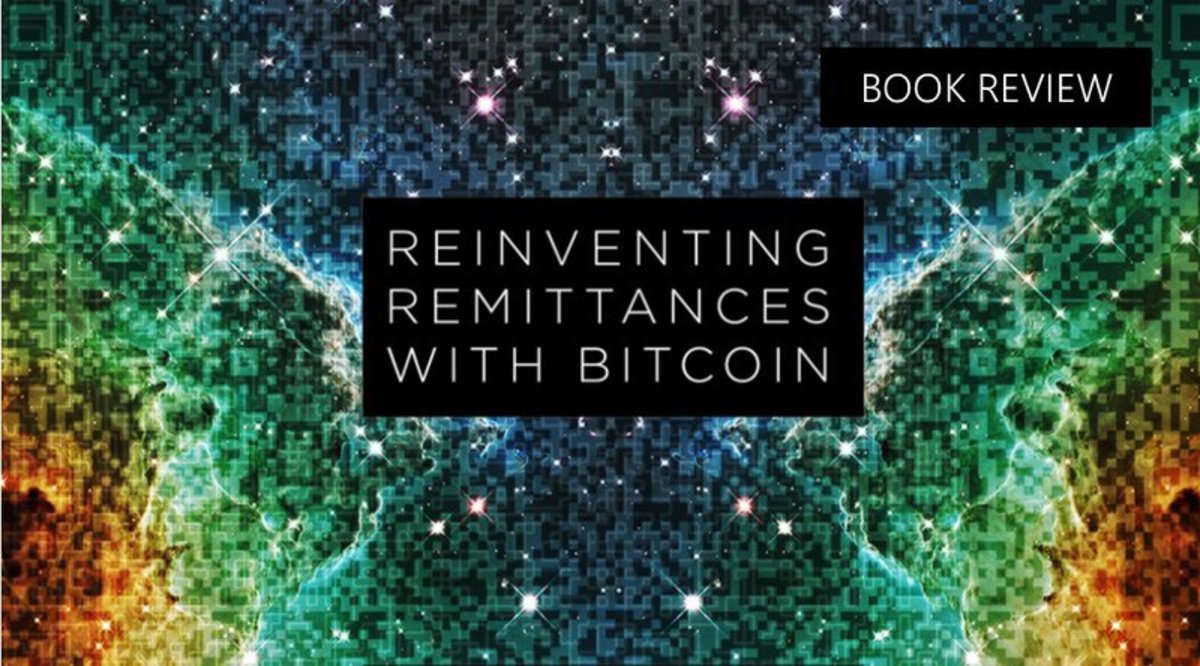
News about immigrants, refugees and guest workers has received a massive amount of media attention of late. Amid this political clamor, questions are being increasingly raised about the future of cross-border remittances and monetary exchange. With this, a new book entitled “Reinventing Remittances With Bitcoin” aims to usher in the next new normal of cross-border financial transactions.
With a message directed toward Bitcoin enthusiasts, entrepreneurs and industry veterans, this compact 47-page read offers a deep dive into the emerging frontier of Bitcoin-powered remittance.
This book is chock-full of stories documenting innovative startups that have had a disruptive impact on this space since 2013. Replete with poignant use cases and data-rich insights, it offers a fresh look at an economic landscape that’s destined for an exponential growth spurt in coming years.
With the advent of Bitcoin in 2009 came its most obvious use case, namely, making the global transfer of money as simple as sending an email. The success of this has now informed the world of remittance, a billion-dollar market with profound implication for migrants and their families.
According to a recent World Bank research report, the potential benefits are enormous for the 250 million global citizens that send $601 billion in remittances back home every year. But as the book “Reinventing Remittances With Bitcoin” suggests, there is still much ground that needs to be explored in terms of blockchain technology’s vast potential in this equation.
The book’s author, Luis Buenaventura, is a Filipino entrepreneur who has been building internet startups for over 10 years. Based in Manila, he has specialized in digital currencies, with a specific focus on the bitcoin remittance space since 2014. Over the years, he has presented on related topics at a number of conferences, including Inside Bitcoins, BlockFin Asia, the International Money Transfer Conference and the Brookings Blum Roundtable.
With his current startup BloomSolutions, Buenaventura helps money transfer businesses improve their processes through Bitcoin and the blockchain. He says he initially discovered Bitcoin back in 2014 in an attempt to identify a solution to low credit card usage rates in the Philippines (around 5 percent at the time) — an issue that had made it challenging to build an e-commerce business. He says that while Bitcoin wasn’t a great fit for ecommerce payments, it was a superior mechanism for cross-border value transfer. This, he says, is how he got started on the road of bitcoin remittances.
His new book is informed by remittance developments occurring in the Philippines, his home country. The number of Filipinos working abroad (the seventh largest among nationality groups of migrant workers around the world) registers at slightly more than 6 million (based on 2013 data). Remittances to families back in the Philippines were estimated at $29.79 billion, the third highest in the world.
In the opening chapter of the book, Buenaventura asserts that it’s simply not possible for a small Bitcoin startup to singlehandedly overthrow Western Union, MoneyGram or other major remittance industry players at this stage. He does, however, suggest the possibility of delivering a very compelling alternative to a small subsection of their customers. “Narrow your focus to the smallest possible problem you can solve, as the oft quoted startup saying goes,” he notes in the book.
He admits that while Bitcoin has a ways to go as a currency, it is extremely good at instant settlement. The book cites Bitspark in Hong Kong and Align Commerce as examples of companies that are currently facilitating the acceptance of fiat currency and converting that cash into bitcoin on the back end prior to transferring the funds to off-ramps in countries like the Philippines and Indonesia.
In breaking down this process, he explains the First Mile and Last Mile challenges and solutions; the former reflecting the remittance transaction origination point, and the latter the end point destination for the settlement process.
Case studies on companies like BitPesa, Bitspark and Abra are widely interspersed throughout the book, along with topical coverage of themes such as “Does the Bitcoin Price Matter?,” “Bitcoin Regulation Around the World” and “Abra: The Uber of Remittances?” among others.
He brings the book to a close with a section entitled “Why Doesn’t Western Union Use Bitcoin?” Here, Buenaventura states that Western Union doesn’t need Bitcoin in its infancy stage, noting that the current unregulated status of digital currencies makes it a risky proposition for a publicly traded company.
“I felt like we’ve gotten so caught up in how Bitcoin is performing as a speculative investment, that we've forgotten its usefulness in other regards,” Buenaventura said to Bitcoin Magazine. “The community has largely moved on from the initial excitement in 2014 around using Bitcoin as a remittance vehicle, and I wanted this book to reaffirm that it’s still happening, and it’s actually working successfully. The fact that 20 percent of the personal remittances flowing between South Korea and the Philippines is now powered by Bitcoin is a big deal, and it deserves to be recognized.”
On the ongoing crisis involving refugees and immigrants worldwide, particularly the terse climate between the U.S. and Mexico,and its potential effect on remittance markets, Buenaventura said:
“While my familiarity is limited to what I read on the feeds, I will say that any time you attempt to restrict cash flow between countries, people will get creative. Maybe that will bring more people into the Bitcoin fold, or maybe it will cause them to stuff cash envelopes into their shoes when they travel. Maybe it’ll be a little of both.”
He laments that there are a lot of components involved when building a bitcoin remittance corridor between countries, which he says is the reason you can’t just throw up new corridors every other week. He cites as an example the difficulty in building a corridor between Malaysia and Nepal because there are no bitcoin exchanges that will allow you to convert your BTC into local currency on the receiving side. And he says that building such corridors in Papua New Guinea, Myanmar or dozens of other countries is even more challenging because the banking infrastructure isn’t homogeneous and doesn’t lend itself toward automation.
Nevertheless he remains optimistic about the potential of Bitcoin as a conduit for advancing the remittance movement worldwide. “The book is meant to act like a general guide for the whole business process. I’m hoping that it will awaken entrepreneurs in these disparate locales to try to solve these problems in their own backyards, and then hook up to the global bitcoin remittance network when they’re ready. The only way to get the whole world connected is if you have hundreds of startups all working on their own piece of the puzzle, because the challenges are deep and varied. Call it the decentralized remittance revolution.”











